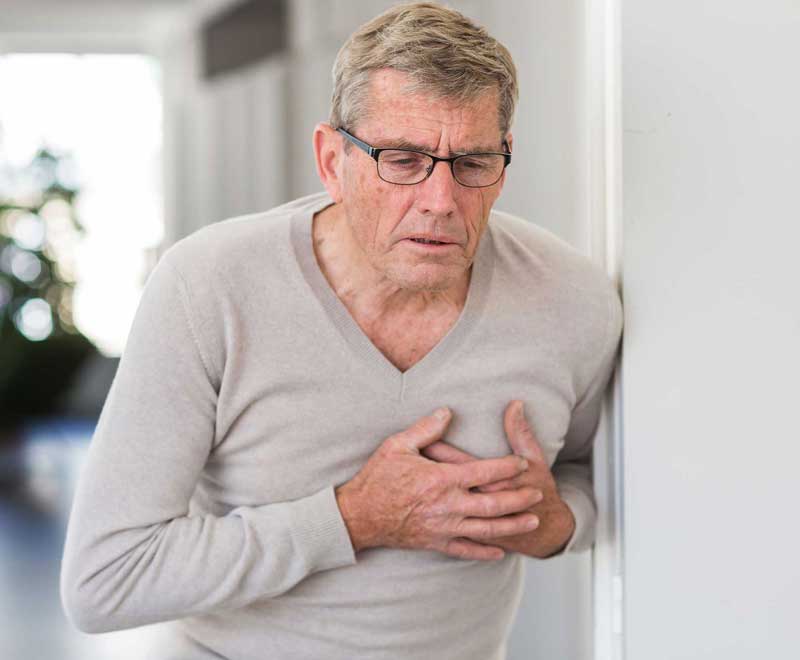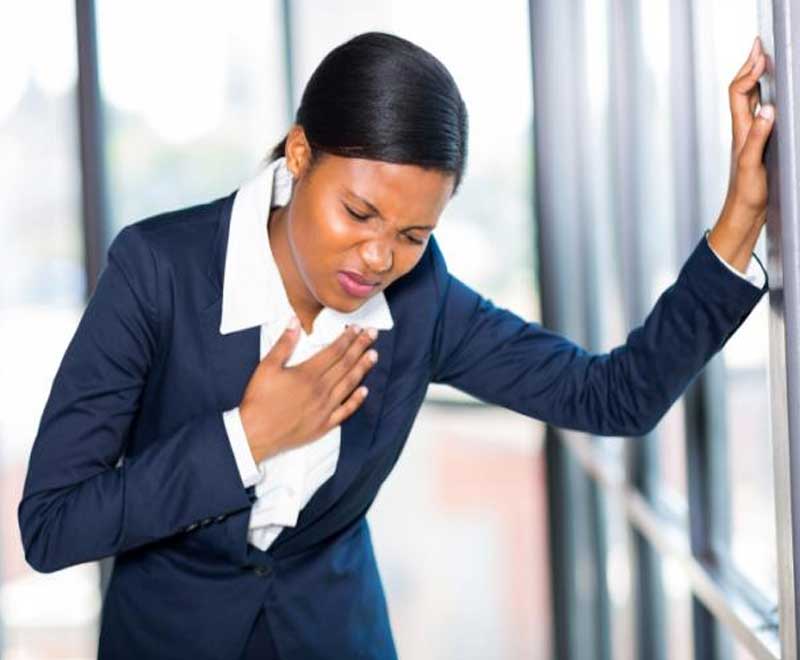
What Is Heart Disease
Heart disease is caused by atherosclerosis (ath-uh-roh-skluh-roh-sis), which is the buildup of fatty deposits, or plaques, in the walls of the coronary arteries over many years. The coronary arteries surround the outside of the heart and supply blood nutrients and oxygen to the heart muscle. When plaque builds up inside the arteries, there is less space for blood to flow normally and deliver oxygen to the heart. If the flow of blood to your heart is reduced by plaque buildup or is blocked if a plaque suddenly ruptures, it can cause angina (chest pain or discomfort) or a heart attack. When the heart muscle does not get enough oxygen and blood nutrients, the heart muscle cells will die (heart attack) and weaken the heart, diminishing its ability to pump blood to the rest of the body.
Signs of Heart Disease
Early heart disease often doesn't have symptoms or the symptoms may be barely noticeable. That's why regular checkups with your doctor are important.
Contact your doctor right away if you feel any chest pain, pressure, or discomfort. However, chest pain is a less common sign of heart disease as it progresses, so be aware of other symptoms. Tell your doctor if you have:
- Pain, numbness, and/or tingling in the shoulders, arms, neck, jaw, or back
- Shortness of breath when active, at rest, or while lying flat
- Chest pain during physical activity that gets better when you rest
- Lightheadedness
- Dizziness
- Confusion
- Headaches
- Cold sweats
- Nausea/vomiting
- Tiredness or fatigue
- Swelling in the ankles, feet, legs, stomach, and/or neck
- Reduced ability to exercise or be physically active
- Problems doing your normal activities
Problems with arrhythmia are much more common in older adults than younger people. Arrhythmia needs to be treated. See a doctor if you feel a fluttering in your chest or have the feeling that your heart is skipping a beat or beating too hard, especially if you are weaker than usual, dizzy, tired, or get short of breath when active.
Health News










